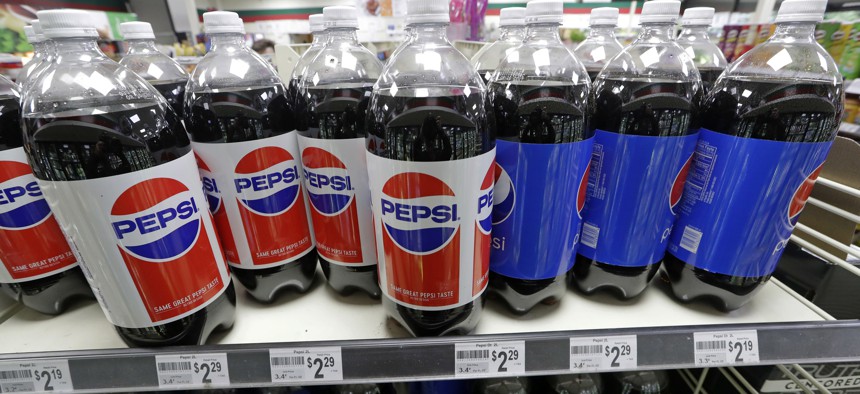Connecting state and local government leaders
But the full cost of the taxes does appear to be getting passed to consumers in at least two cities.
Philadelphia’s soda tax has not cut down on the average consumption of sweetened beverages among adults or children overall, according to researchers who’ve been studying the levy.
But they say it has contributed to declines in consumption of the drinks for some groups that have previously consumed them at high levels, and are at risk of diet-related health problems.
This and other evidence is emerging about how the taxes affect the consumption and prices of sugary beverages.
Researchers from the University of Iowa, Cornell University and Mathematica Policy Research are among those studying the taxes. They described in an article earlier this month some of their recent findings about how things are working out with Philadelphia's version.
Groups in the city that have seen declines in sugary beverage intake include kids who have been drinking the equivalent of a 20-ounce bottle of soda per day, as well as African American adults and children.
“These findings are meaningful for policymakers because the tax appears to be reducing consumption among groups who are at higher risk of developing health conditions because of their diets,” the authors of the research say in their article.
“We suspect that part of the reason for the decline is related to their previously high levels of consumption and the budget implications of continuing to buy with the same frequency after prices rose,” they add.
They go on to note that “those with high consumption are also simply capable of greater decreases in consumption, so we’re more likely to see them make notable improvements.”
The researchers caution that more study is needed in Philadelphia and other cities to better understand how the tax is affecting consumer behavior and health. They’re also examining a sugary beverage tax in Oakland, California that city voters there approved in 2016.
At least nine U.S. cities have enacted taxes on sugary drinks since 2015. Soda makers spent big last year on a ballot measure in Washington state to prevent local governments there from following Seattle’s lead and doing the same. It passed. A similar measure in Oregon failed.
The thinking behind taxing sugary beverages is that they can increase health risks related to obesity and diseases like diabetes. It’s similar to the rationale for taxing cigarettes and liquor.
Depending on how the taxes are designed, revenues may flow toward health-related programs.
Critics of sugary drink taxes commonly argue that they’re “regressive,” falling disproportionately on people with lower incomes.
The researchers also found some people may be shopping more frequently outside of Philadelphia’s city limits, avoiding the tax.
And they say retailers in the city are passing the full cost of the tax onto consumers. This particular finding mirrors the results of a study released in January on Seattle’s sugary drink tax.
It, too, found that retailers are more-or-less passing the full freight of the tax onto consumers, with the price for a typical two-liter bottle of soda bubbling up 64 percent, to $2.95, from $1.80.
The average “pass-through rate” of the added cost of the tax to the retail prices consumers in Seattle paid did vary by beverage type. For example, for bottled sugary coffee beverages it was 62 percent, energy drinks 111 percent and soda 102 percent.
“Although we weren’t surprised, it wasn’t guaranteed the tax would be passed on,” Jessica Jones-Smith, associate professor of health services and epidemiology at the University of Washington School of Public Health, noted at the time the study was released.
The Seattle study found that the price of non-taxed beverages in supermarkets and superstores did not increase significantly.
But in smaller stores the opposite was true, with prices going up on average for drinks not subject to the tax, particularly diet sodas and energy drinks and to some extent teas and diet sports beverages. Milk and bottled water prices largely did not rise even in the smaller shops.
Seattle’s tax on sugary drinks is not a sales tax, but rather a “privilege tax” assessed at a rate of 1.75 cents per fluid ounce. It applies to the distributors who sell the drinks to retailers.
The tax took effect in January 2018 and was effectively grandfathered in under the ballot measure that passed last year restricting similar local taxes elsewhere in the state.
Philadelphia’s tax is also imposed on distributors and is set at a rate of 1.5 cents per ounce. It’s been in place since 2017. The tax survived a court challenge that went all the way to the state Supreme Court, which ruled last summer in the city’s favor.
The researchers who looked at the tax there flagged a paper from last year that seeks to provide a framework for the “optimal” analysis of “sin taxes.” It concludes that the optimal level for sugary drink taxes is around 1.5 to 2.5 cents per ounce.
Bill Lucia is a Senior Reporter for Route Fifty and is based in Olympia, Washington.

NEXT STORY: California Governor on Opportunity Zones: ‘I hope it’s not just to make a quick buck.’




